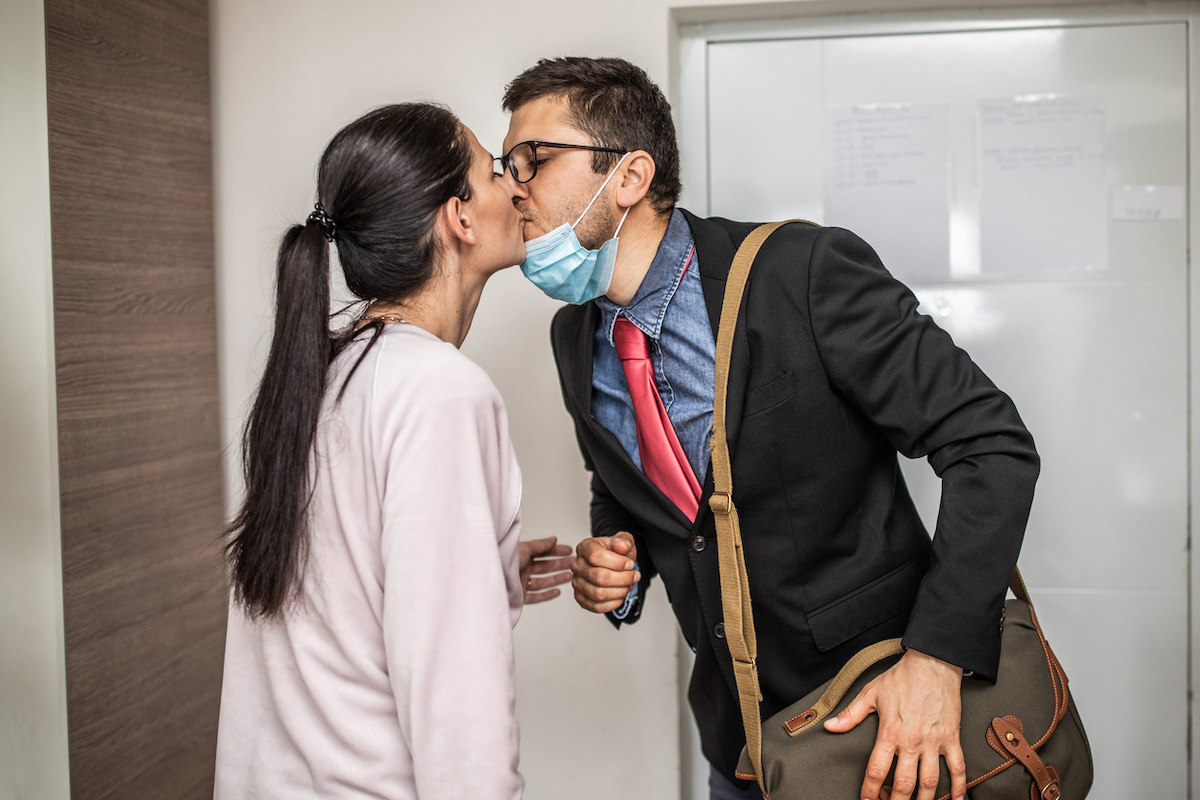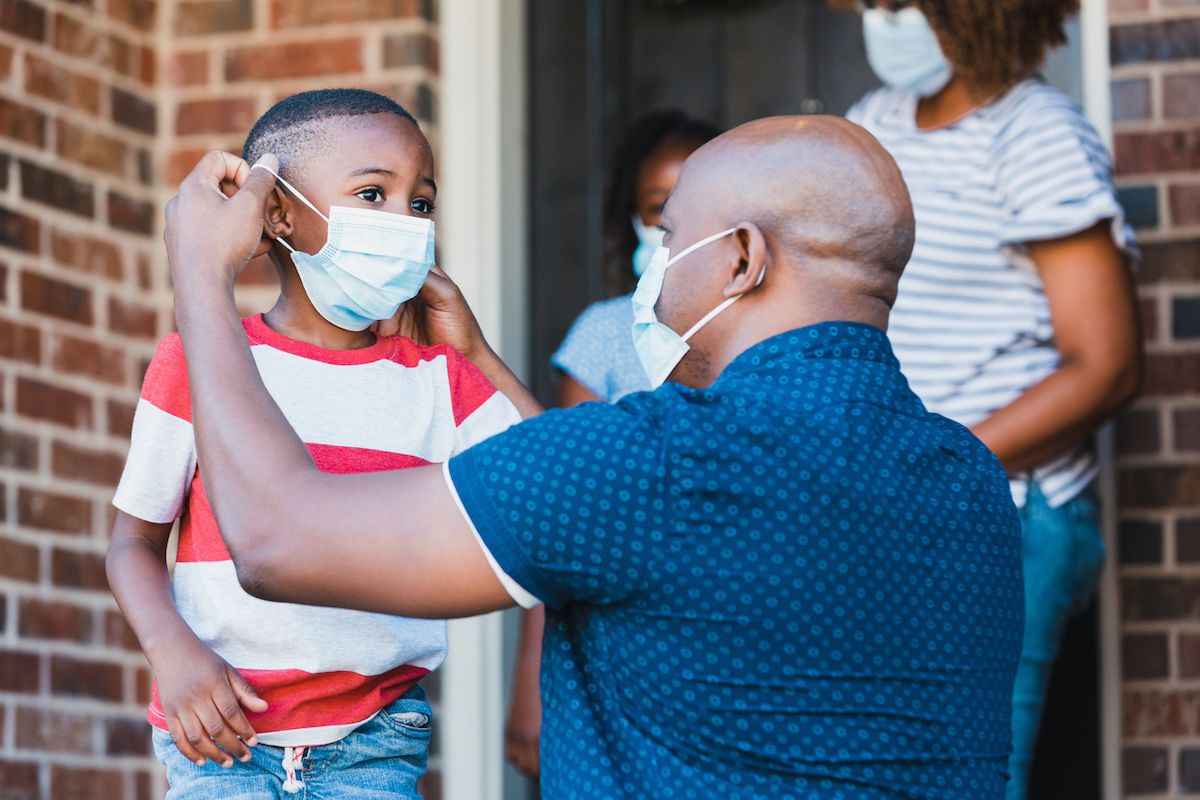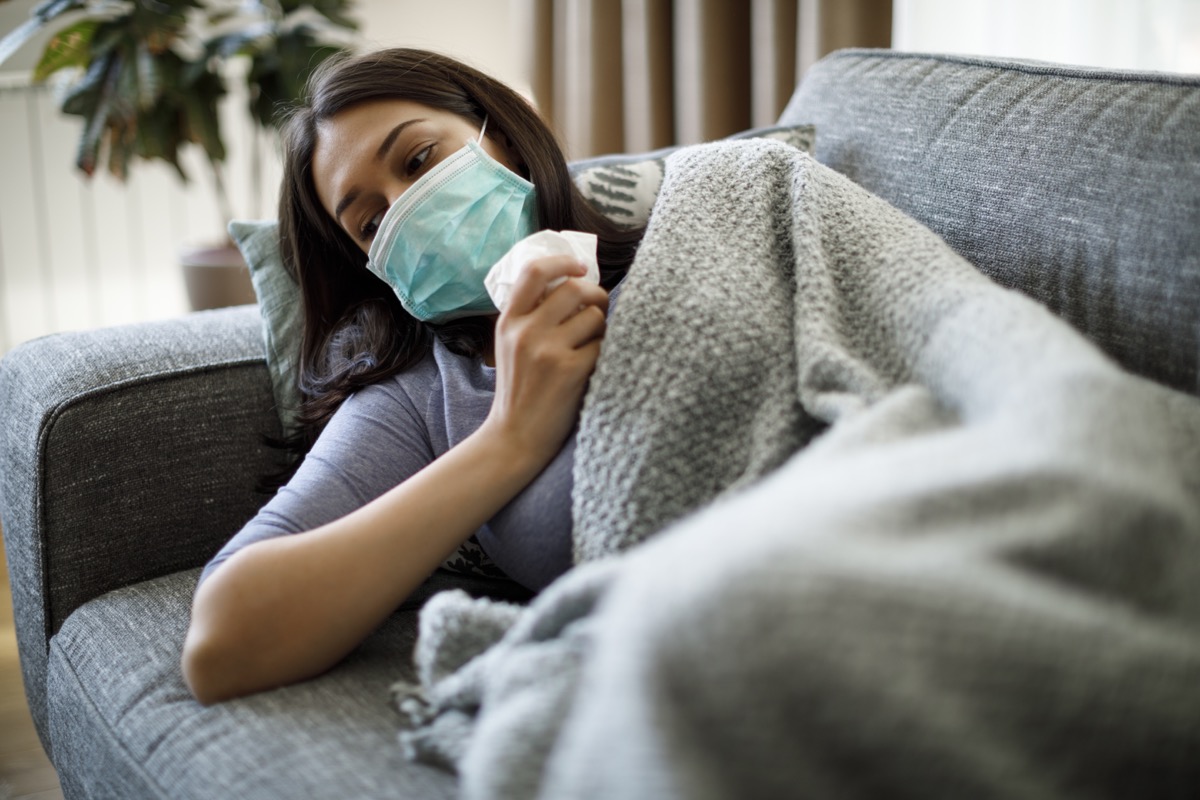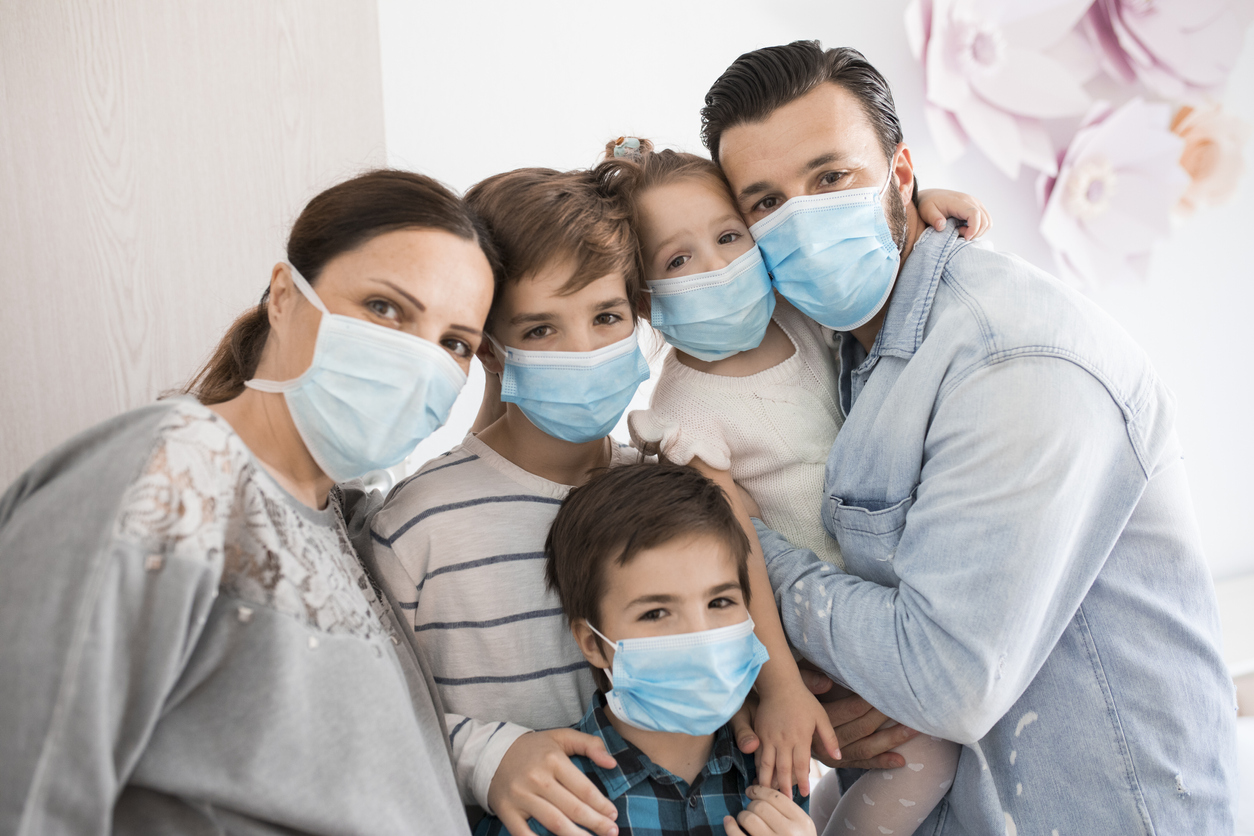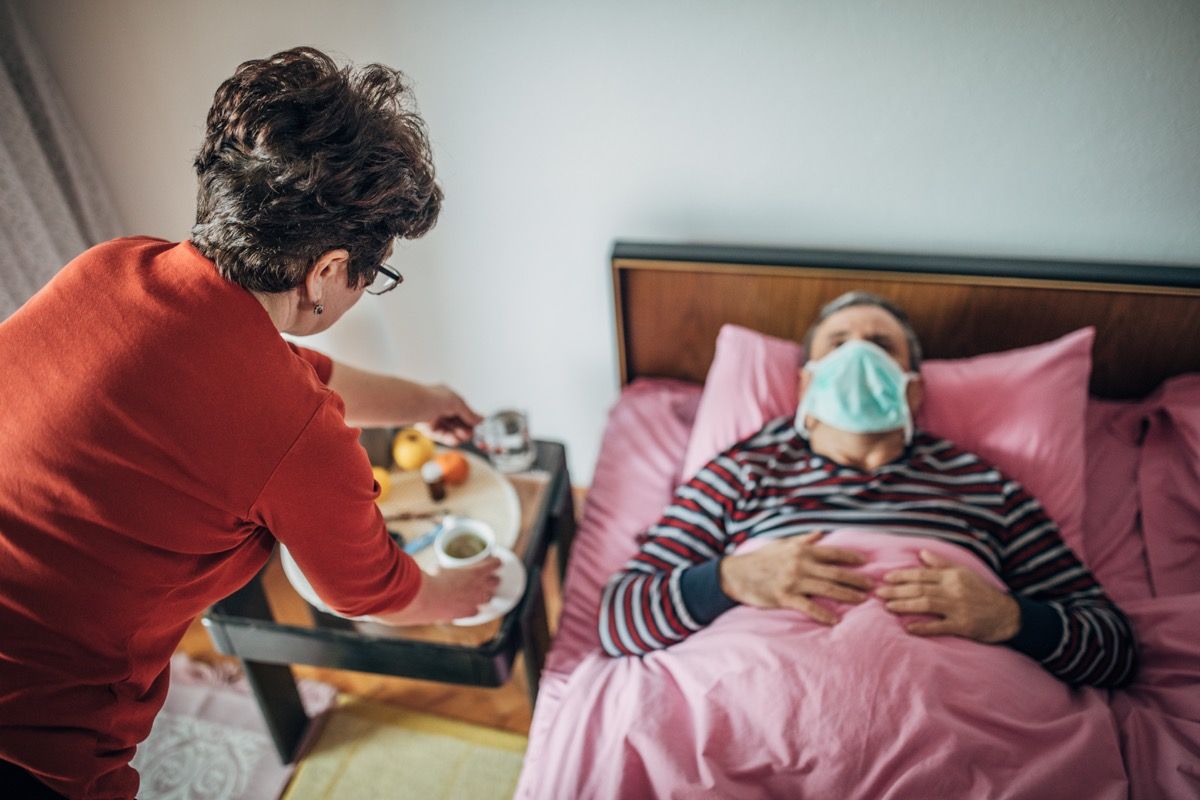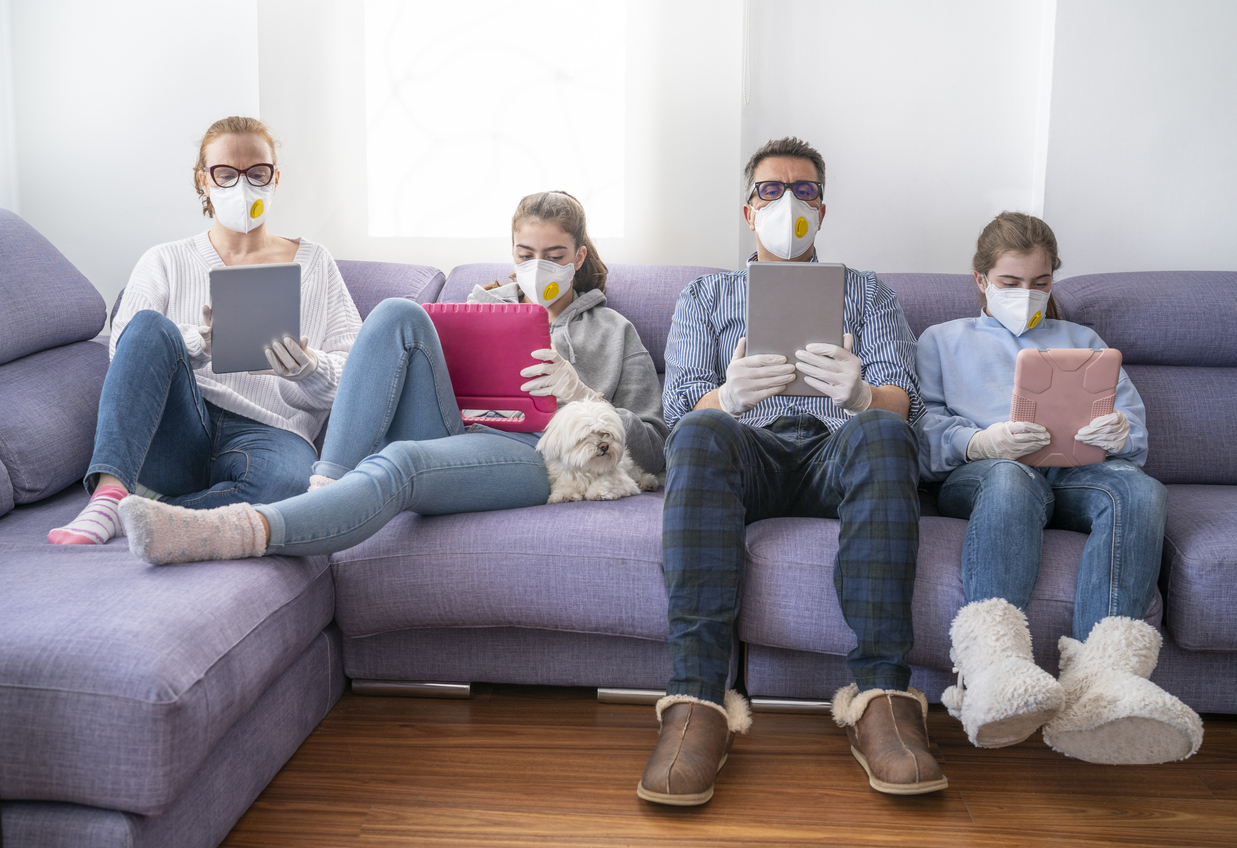The new meta-analysis out of the University of Florida, which was published in the journal JAMA Network Open on Dec. 14, is based on 54 studies that span 20 countries and nearly 78,000 subjects. According to the researchers’ findings, in more than one in three cases—about 37.8 percent—patients passed COVID on to their spouses. “Infection risk was highest for spouses, followed by non-spouse family members and other relatives, which were all higher than other [close] contacts,” the authors wrote. So what does this mean for anyone sharing a house with someone who’s been infected? Read on to see, and for an update on the vaccine timeline, check out Dr. Fauci Just Said You’ll Be Able to Get the COVID Vaccine Even Sooner. Read the original article on Best Life. While anyone living under the same roof could potentially spread coronavirus amongst their housemates, the study points out that spouses are more likely to infect one another with COVID due to a variety of factors: “intimacy, sleeping in the same room, or longer or more direct exposure to index cases,” according to the report’s authors. And if you’re curious if you could be sick, read up on The Easiest Way to Tell If You’ve Been Exposed to COVID. Overall, the researchers found that 16.6 percent of all people with COVID-19 in the studies they analyzed passed the virus on to members of their household. But, compared to the high rate of COVID transmission between spouses, only 16.8 of positive COVID patients transmitted the virus to the children they live with. And for more regular COVID updates, sign up for our daily newsletter. The study also found that those who showed symptoms passed COVID-19 on to members of their household 18 percent of the time, whereas patients who showed no signs of being sick spread the virus to just 0.7 percent of their household contacts. And for more on what else is risky during the pandemic, check out You’re 10 Times More Likely to Get COVID Here Than Anywhere Else. Keeping yourself protected from coronavirus is one thing while in public, but it can be significantly harder to keep up efforts when you’re lulled into a sense of safety by being in your home. Unfortunately, a recent study by the Centers for Disease Control and Prevention (CDC) found that 53 percent of people who lived with someone infected by the novel coronavirus caught the disease within seven days. And for more on this report, check out These Are Your Chances of Getting COVID If Someone in Your Home Has It.ae0fcc31ae342fd3a1346ebb1f342fcb It might be easy to avoid large crowds and wear your face mask in public, but things take on a different level of difficulty when you’re forced to use your living room with the same precautions you would during a trip to the grocery store. Still, experts recommend isolating yourself from anyone who’s sick to the best of your abilities, and to designate one lower-risk person to care for them using extra steps to keep themselves safe. “You can have a healthy person leave the sick one food and drinks at the door, and then go wash their hands,” Tanya Altmann, MD, told CNN. “Wear gloves to pick up the empty plates, take them back to the kitchen and wash them in hot water with soap, or preferably with a dishwasher, and wash your hands again.” Looking to lower your risk even further? “I’d keep windows open in all shared spaces,” Leana Wen, MD, an emergency physician, told CNN. “Also, an air purifier with a HEPA filter could help. So would a humidifier, as viruses linger longer in dry air—especially in the shared space.” And for more on how your area is faring against the pandemic, check out This Is How Bad the COVID Outbreak Is in Your State. Even though being able to take off your mask when you walk in your front door feels like a relief, keeping it on around the house could be the key between getting sick and staying healthy. One recent study even found that donning a face covering is 79 percent effective in stopping the spread of COVID-19 to other members of a household when they were put to use before someone became fully symptomatic. But this kind of situation also means that everyone at your address will have to fully quarantine to stop the spread outside the household. “I would recommend that families find friends who can drop off essential groceries or medications, not go to work, and not play with other children—even outside,” Jenny Radesky, MD, a spokesperson for the American Academy of Pediatrics, told CNN. And for the one mask you shouldn’t wear, check out If Your Face Mask Has One of These, Stop Using It Immediately.
